Can you be both restless and content? Standing last week with Graeme McPherson on the viewing platform over his sharply rising gallops near Stow-on-the-Wold, I found a man who answers to both descriptions. An in-demand QC with a big sporting practice, Graeme is also a racehorse trainer with a fast-expanding yard, a glorious Cotswold hillside house and a plan for the future.
Like most journalists, I live by the next deadline. My lawyer daughter and her husband, another advancing QC, chide me for my lack of a life plan, so perhaps it reveals something about the legal profession that Graeme started his racing career with two. The five-year plan was for a yard of 30 decent horses by December 2014, a target achieved with a year to spare. The ten-year plan is to have trained a Cheltenham Festival winner, and if I can find a bookie to give me reasonable odds on him doing that I will take them. He has turned out ten winners already this season, and as we clumped across the Gloucestershire mud in our wellies his strike rate of wins and places to runners was more than 40 per cent.
The lawyer’s brain was on display. As I asked about the passing string, Graeme rattled off the last two seasons’ runs for each with machine-gun rapidity and a candid assessment of strengths and weaknesses, both of horse and trainer. Keep an eye open for Werenearlyoutofit, beaten less than a length by Prince Siegfried at Huntingdon in November, and for Timesishard, who should have an exciting novice chasing season next year. The current stable star, Harry Hunt, who cost just £7,000, has already won his owners £50,000. Described by his trainer as ‘really lazy’, he is taken periodically to Peter Cundell’s springy turf gallops to get him spot-on. Last summer Graeme noted the Flat race for jump jockeys at Goodwood. ‘It poured with rain and the ground shouldn’t have suited but he won. Add a few hurdles and I’d be there every week!’
At first when he called agents for a decent jockey, it was, ‘We’ll get back to you if there’s nothing else.’ Now Swindon-based Wayne Hutchinson (who has equal status with ‘Choc’ Thornton at Alan King’s yard) rides for Graeme whenever he can, and other top riders like Jason Maguire partner his horses.
One complication is the other life as a lawyer. Advising and defending racing figures entangled in disciplinary proceedings can make you friends — the day Graeme rode his first pointer he was legged up by Jonjo O’Neill. But prosecuting on behalf of racing’s rulers can cause problems. Most take it professionally: Evan Williams successfully defended himself in one case and when Graeme saw him advance across the parade ring soon after he feared the worst. Instead the Welshman stuck out a hand: ‘No hard feelings. I know you were only doing your job.’ Others are less professional and just in case of a malignant revenge Graeme doesn’t label the boxes at his Martin’s Hill yard. ‘I don’t want to come down one morning and find a trickle of blood down the neck of one of my best horses.’ His legal status means that he must run a squeaky-clean yard himself, and when one of his horses was reported by stewards as a possible non-trier it made racing headlines. The potential blow to his reputation and (far more crucially) to his legal career was dismissed on appeal but not before some poison-pen letters along the ‘now you know how it feels’ lines ruined a few breakfasts for Graeme and his lawyer wife Seanin.
As a point-to-point rider, Graeme didn’t make it, but turning to training pointers after a bad fall taught him the basics. Learning to train owners has been another matter. ‘They are in racing for very different reasons. For some the horses are pets. Others are gamblers with only one thing in mind.’ Graeme’s gamble was in not going for cast-offs from big yards in the hope of squeezing out one more win but in bringing on young, quality horses. ‘I knew it would be years, not months, before we made an impact.’
Patience, though, can backfire. One of Graeme’s best prospects was Wychwoods Brook. He won a Sandown novice hurdle and was placed in two more, but he was a big, weak horse who needed time and his end-of-season form tailed off. The owners took him away, saying that they reckoned Graeme was at his best bringing on younger horses. Last Saturday it was Evan Williams who turned out Wychwoods Brook, a future Grand National prospect, to win Haydock’s Grade Two Peter Marsh Chase — just the sort of Saturday TV victory to put an up-and-coming trainer on the map. But, as Graeme said when I was with him, ‘It’s no use fretting about the ups and downs — in racing there are so many downs.’ After all, he himself has won four races with Cocacobana, who came to him from Rebecca Curtis’s with the reputation of being no good.
Got something to add? Join the discussion and comment below.
Get 10 issues for just $10
Subscribe to The Spectator Australia today for the next 10 magazine issues, plus full online access, for just $10.
You might disagree with half of it, but you’ll enjoy reading all of it. Try your first month for free, then just $2 a week for the remainder of your first year.

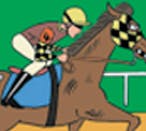
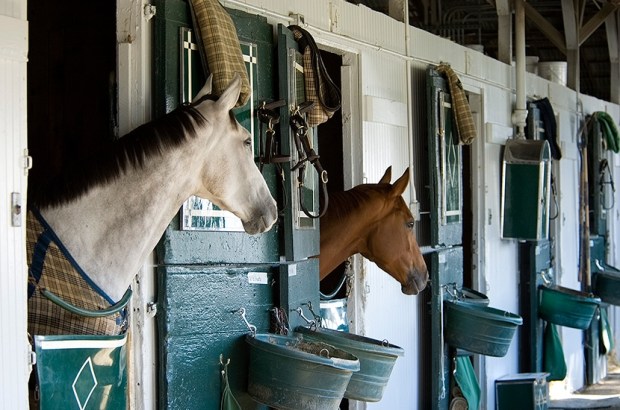
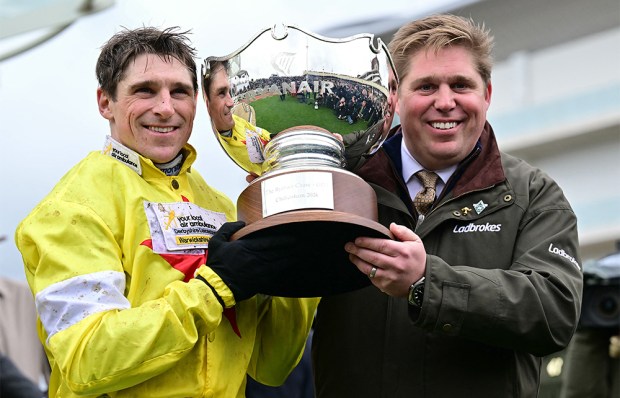
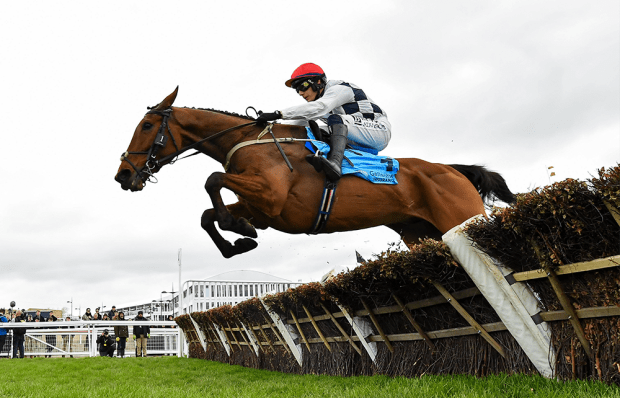
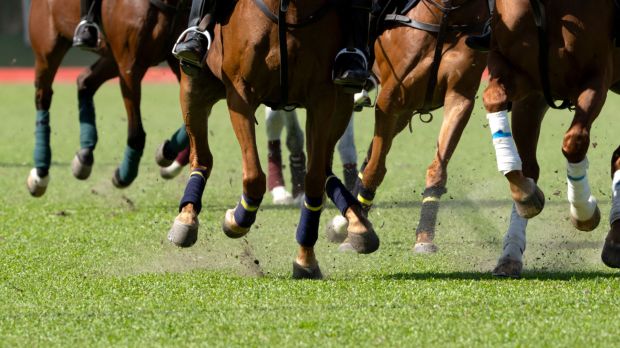
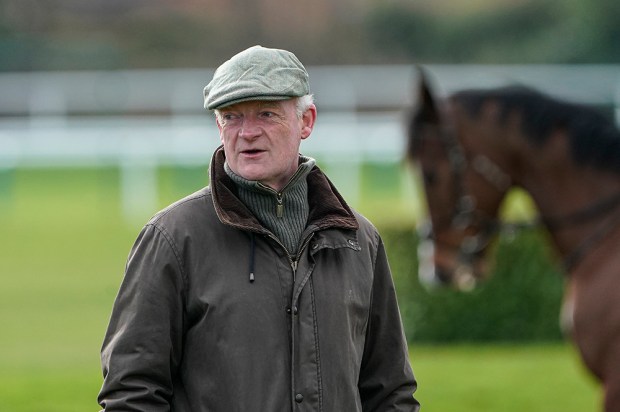
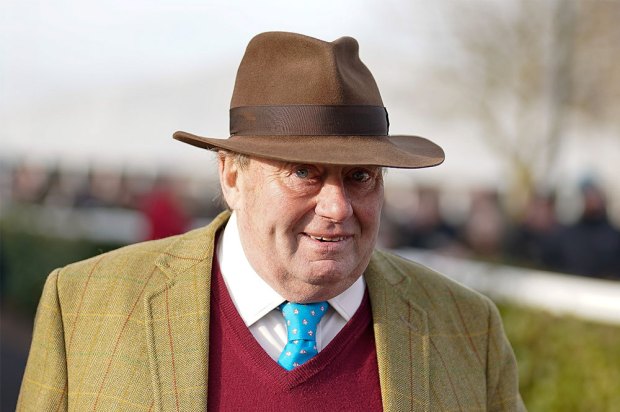






Comments
Don't miss out
Join the conversation with other Spectator Australia readers. Subscribe to leave a comment.
SUBSCRIBEAlready a subscriber? Log in